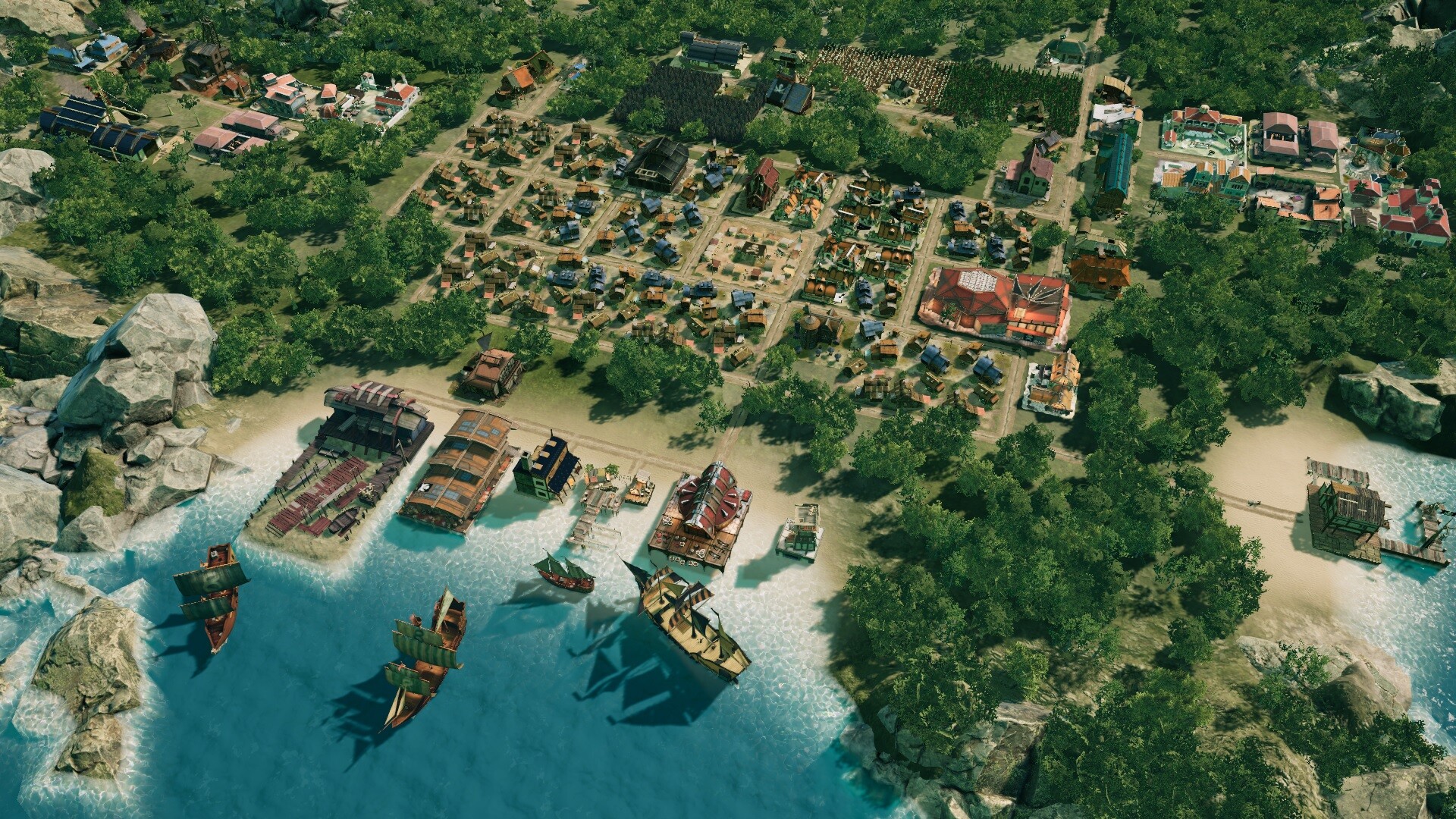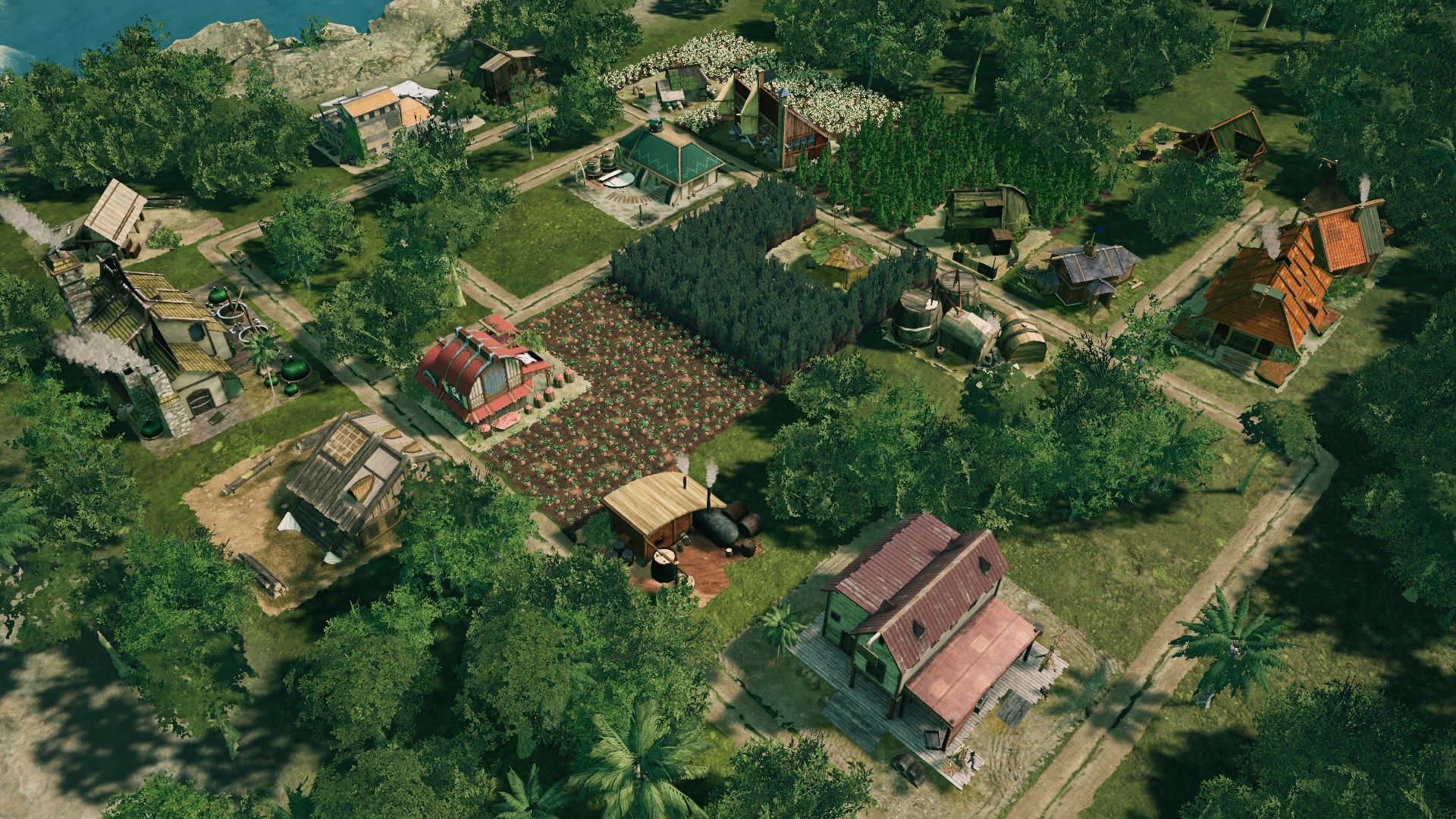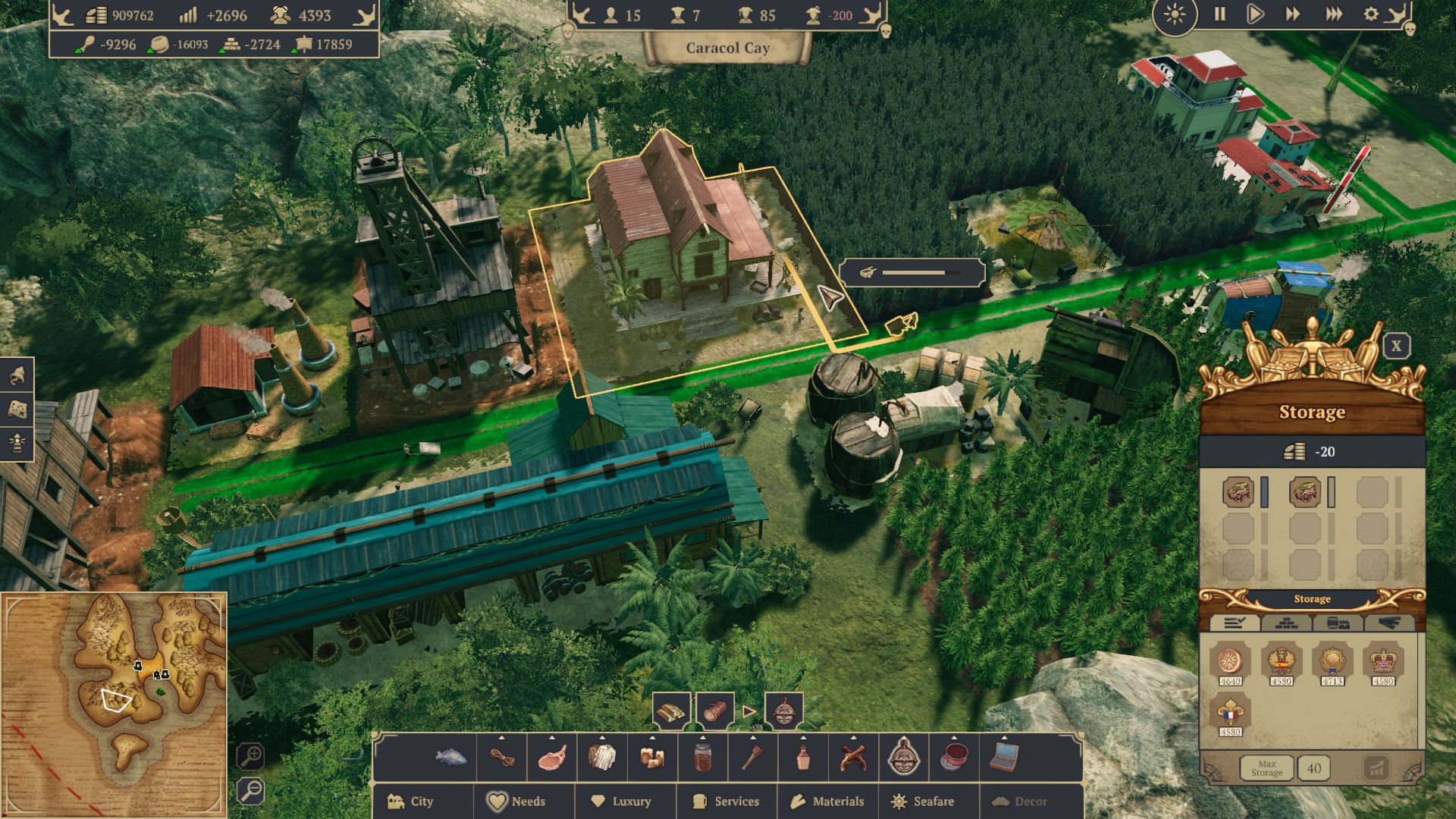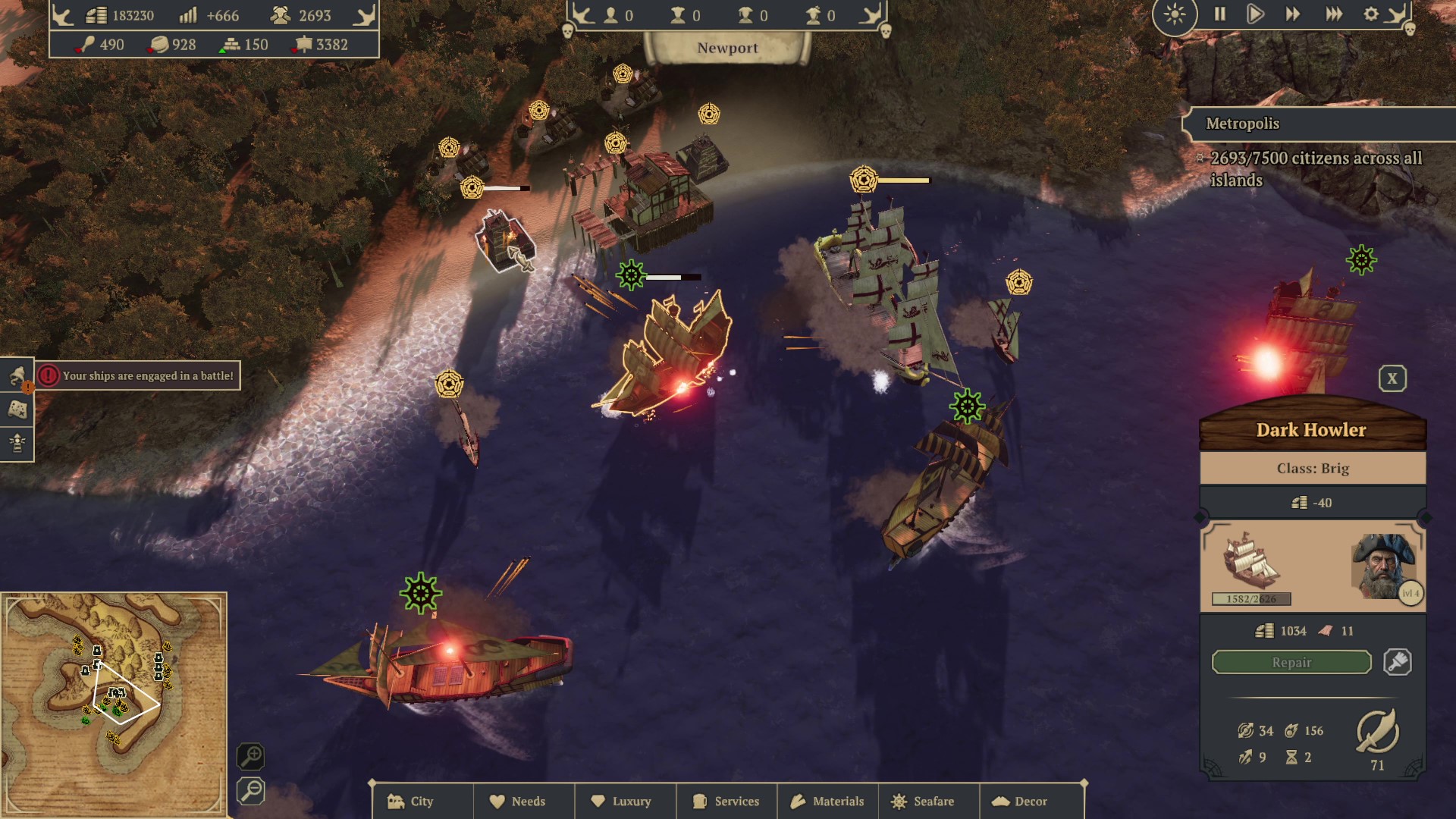
There are surprisingly few pirate-themed city-builders. The legendary Tropico 2: Pirate's Cove and Port Royale: Gold, Power and Pirates launched over 20 years ago, and there really hasn't been anything that's hit the same heights since. If you're after an all-conquering, seven-seas-settlement sim, then you've come to the right place. Republic of Pirates is all of the above – a deep and sophisticated pirate-themed city-builder that's directly inspired by Anno and Age of Empires.
And if you fancy some of that, you'll be pleased to know that Republic of Pirates is due this year on PC via Steam and the Epic Games Store, and can be wishlisted right now on both digital storefronts.
So, what is it that floats this pirate-themed city-builder's boat? With the overarching objective of reuniting a league of Caribbean islands under one black flag, and shaped around its three core pillars of city building, fleet management and diplomacy, Republic of Pirates offers an impressive scope to entice strategy players. Success will invariably hinge on balancing all three of these systems in tandem – creating a holistic experience that gives "life to the archipelago" – but the player will need to be mindful of all three systems and react to the situation as it evolves.
While growing your pirate settlement, your focus will span city building, resource production and workforce management. You'll start out by building huts to house your citizens, with storage buildings used to stockpile and distribute materials. Docks can be used to claim new islands, repair damaged ships, and share resources with neighbouring settlements. Production buildings are the cornerstone of your economy as they supply the goods needed to sustain other production buildings/chains, and supply the goods that your citizens demand. From fisheries to hemp plantations and distilleries, your pirate citizens will have myriad options to get ahead and improve their standing in your society.

Moreover, Services are specialised buildings designed to provide R&R for your settlements, with taverns, brothels, and fighting pits, all era-specific means for your citizens to press pause on their hard lives at sea. On the Materials side of things, wood, bricks, and iron are the raw materials used to construct buildings, allowing you to continue constructing and expanding as you go. The likes of lumber mills, brick kilns and iron mines will ensure your production chains remain active, in turn helping you expand and securing trade deals as your settlement grows. A well-staffed building will be more efficient, but every island will have its own workforce, so you need to make sure that you have enough of the right tier of worker on each island to keep it ticking.
Production chains are one of Republic of Pirates central mechanics – a system that's easy to learn but difficult to master. In essence, production chains are designed to turn 'raw' materials 'harvested from the islands' into 'refined' resources. Depending on how complex that refined resource is, and to what scale you're trying to produce it to, that process becomes more involved – sometimes with multiple buildings working in tandem to make it happen. In the case of steel beam production, for example, the production chain will look like this: coal produced in the charcoal kiln and iron produced in the iron mine can both be used for steel production in the furnace which consequently enables the steelwork to produce steel beams.
After that, it's your job to ship the refined resource to where it needs to be. As you might imagine, balancing your production chains with supply pipelines is the key to prosperity.

Of course, no pirate life is complete without a fleet of ships, therefore Seafaring lets you build shipyards to craft vessels and set into motion your plans to conquer the waves. The second key pillar of Republic of Pirates, then, is fleet building and naval combat. Once you have a few ships under your command, you can strike out in search of loot and flotsam, engage in real-time naval combat with your rivals, conquer neighbouring islands, and defend your shores against enemy raids.

Over the course of your Republic of Pirates playthrough, you'll be able to unlock eight different ship classes, each boasting different stats and utility. Ship captains are assigned to each vessel, and the number of available captains will determine fleet size.
Once all of the above falls into place, Republic of Pirates third key pillar comes to the fore: expanding your influence across the archipelago. All told, re-establishing a pirate utopia is your endgame – but you can only do that by conquering islands and maintaining diplomatic relationships along the way. To this end, rival islands have production conditions, penalties and bonuses applied to the production of certain resources, which makes them worth conquering. All islands in the archipelago are likewise controlled by rival pirate clans or national powers. These relationships can be improved by opening trade, completing quests, and paying tribute, but conversely will break down should you decide to attack.
Only by balancing all of the above – from city building to fleet management and diplomacy – can you hope to conquer the seven seas in Republic of Pirates. Due at some point in 2024 on PC via Steam and the Epic Games Store, weigh your anchor right now by wishlisting it on both digital store fronts now.







